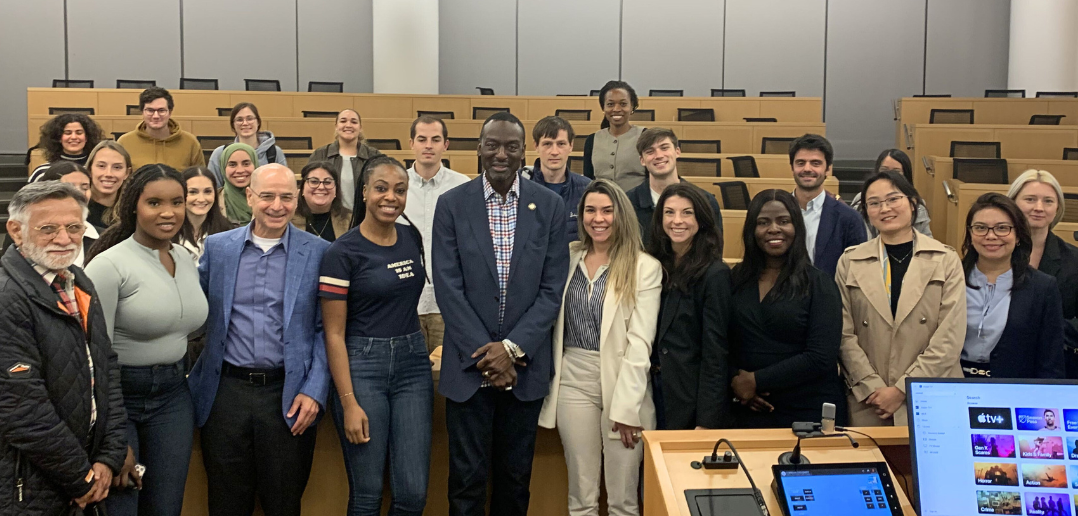Yusef Salaam, one of the “Central Park Five” who spent years incarcerated for a crime he did not commit, shared his powerful story of perseverance and transformation during a Q&A at Fordham Law School.
Salaam, now a New York City councilman, justice advocate, and motivational speaker, spoke at the Law School following a screening of The Central Park Five, the 2012 documentary directed by Ken Burns. The film delves into the media frenzy, racial bias, and flawed police practices that led to Salaam’s conviction, despite a lack of physical evidence and coerced confessions. He was invited to speak by Adjunct Prof. Ric Fouad, who teaches Professional Responsibility at Fordham Law.
“Young people who are made to believe ultimately that they were born mistakes begin to move throughout their lives in error because they believe the narrative that somehow they’ll be dead or in jail by 21,” said Salaam, who has devoted his life to advocating for reforms that could prevent others from enduring similar ordeals. “This is something that I too didn’t get the opportunity to escape. When I look at my story, especially now as an elected official, those who have been close to the pain and those who have been in pain have to have a seat at the table. Who better than a person who has been impacted to be able to articulate a way forward? That’s the way forward.”
In 1989, Salaam and four other young Black and Latino teenagers were wrongfully convicted of a brutal assault on a jogger in Central Park, a case that gripped New York and fueled widespread debate over race and criminal justice. Years later, DNA evidence and a confession from the actual perpetrator led to their exoneration, making the case a pivotal example of racial injustice and the flaws within the criminal justice system.
Recently, Salaam and his fellow exonerees made headlines again as they filed a lawsuit this month against Donald Trump for defamation, stemming from his comments during the 2016 presidential campaign that branded them as guilty despite their exoneration.
Students were captivated by Salaam’s powerful recounting of his journey from Rikers Island to City Hall. During the Q&A session, student France François LL.M. ’25 shared with the audience that her disbelief in the legal system had motivated her to attend law school. She asked Salaam, “How did you find the strength to represent a city that turned its back on you?”
“To say you were born on purpose and with a purpose, to be unapologetic in that space, and to prove it,” responded Salaam. “The truth is undeniable. There’s a need for you and everyone in this room to articulate the problem because some of these issues are still the problems we’ve always had.”
“Being concerned about what you leave in this world is important because everything you do matters, everything you do counts. I’m not doing this because I want to be a councilman, I’m doing this to be able to stand up and say I went from being rejected to selected to elected,” he continued.
Salaam closed by addressing the inevitable challenges that come with advocacy. “There will be times where you’ll be fighting for a client and the opposition will be so heavy, but you’ve got to find the strength to keep on keeping on because that person is counting on you, and you were called to represent that individual.”


